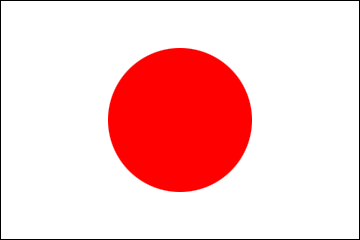At the Online Seminar "Japan’s Experiences on Water Supply Development"
2021/10/12
Ambassador's Speech
Hon. Vasudeva Nanayakkara, Minister of Water Supply
Dr. Priyath Bandu Wickrama, Secretary to the Ministry of Water Supply
Mr. Anura Dissanayake, Secretary to the Ministry of Irrigation
Mr. S.G Wijayabandu, State Secretary of Rural and Regional Drinking Water Supply Projects Development
Mr. Nishantha Ranatunga, Chairman of the National Water Supply and Drainage Board,
Professor. TAKIZAWA Satoshi of the University of Tokyo
Distinguished Panelists and Participants,
Ladies & Gentlemen.
Good morning, Ayubowan, Wanakkam, おはようございます.
It is my great pleasure to welcome you all today to this online seminar on "Japan’s Experiences on Water Supply Development". It also gives me great honour to have Prof. TAKIZAWA of the University of Tokyo as our keynote speaker, in the kind presence of Hon. Vasudeva Nanayakkara, Minister of Water Supply. We are also pleased to have more than 250 officials in the water sector of our two countries participate in this seminar.
I would like to take this opportunity to give you a brief overview of Japan’s assistance to Sri Lanka in water supply development.
Water supply development is one of the priority areas in the Government of Japan’s development assistance to Sri Lanka. Over the past 30 years, Japan has contributed over JPY 120 billion (USD 1.1 billion) with more than 30 projects to meet the genuine needs of Sri Lanka in the areas of water supply, sanitation and hygiene throughout the country, mostly implemented by the Japan International Cooperation Agency (JICA). Japan has assisted in supplying safe drinking water to more than 3.5 million people, about 15% of the population in Sri Lanka, covering metropolitan areas such as Greater Colombo and Greater Kandy, as well as rural areas including Kilinochchi, Anuradhapura, Ampara, Nuwara Eliya, and Matara. Through these projects to provide clean and safe water, which is essential to any economic activities, Japan has contributed to quality and inclusive economic growth in Sri Lanka by promoting urbanization and industrialization as well as by mitigating regional disparities in economic development.
Historically, in Sri Lanka, national authorities have attached central importance to water-related projects since time immemorial, and Sri Lanka is proud of its distinguished history of world-famous hydrological technology, as evidenced by the renowned Sigiriya Rock and by the presence of numerous reservoirs or tanks in various parts of the island. On the basis of such great tradition, which has nourished the fertile land of this beautiful country, Japan has been extending assistance to Sri Lanka in providing safe drinking water for all the people in Sri Lanka with Japan’s accumulated knowledge and experience.
Today’s keynote speaker, Professor TAKIZAWA, is a leading scholar and expert in the field of water supply in Japan with extensive experiences in working for Japan’s ODA-projects. I wish to extend my heartfelt appreciation to Prof. TAKIZAWA for accepting our request to share his knowledge and experiences with us today.
I believe that Japan’s technology and experiences, which will be shared by Prof. TAKIZAWA today, will contribute to the Government of Sri Lanka’s efforts in further accelerating the proclaimed "Water for All" initiative, which aims to provide safe drinking water to all the citizens by 2025. I also hope that this seminar will help our two countries further promote bilateral cooperation in water supply development
As a long-standing friend of Sri Lanka, Japan remains committed to assisting Sri Lanka with safe water supply and sanitation improvement through providing high-quality infrastructure as well as sharing advanced water management technology and expertise. This assistance would indeed imply the beautiful merger of Sri Lankan tradition and Japanese technology, which stands as a great symbol of our historically close bilateral relations, as we prepare to celebrate the 70th anniversary of the establishment of diplomatic relations next year.
Thank you very much for your kind attention.
